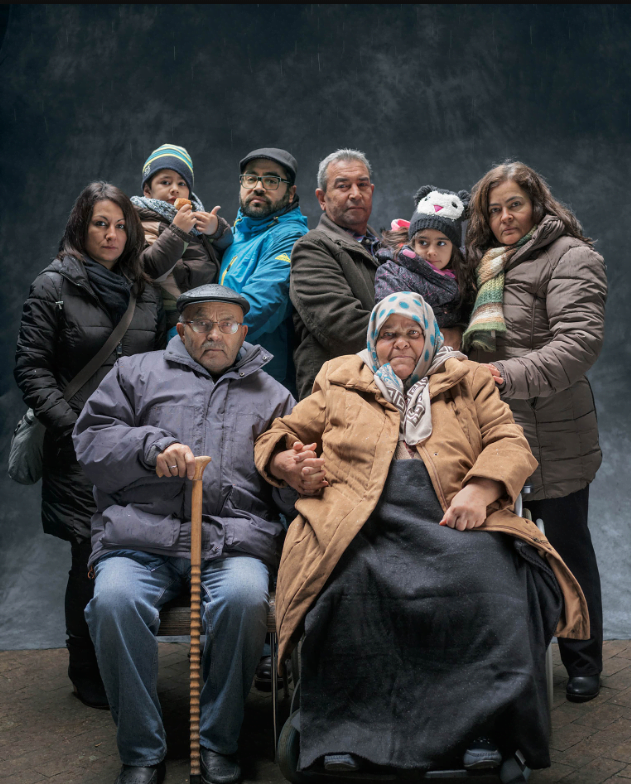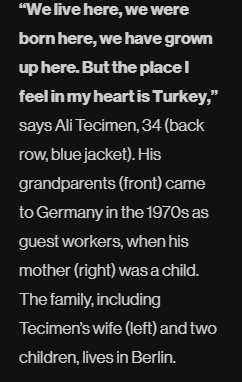National Geographic : THE NEW EUROPEANS Voices from a changing continent

 With the worst history of xenophobia, Germany has taken in the most refugees of any European country. The stakes of the experiment are high.
With the worst history of xenophobia, Germany has taken in the most refugees of any European country. The stakes of the experiment are high.
If you’re European, and especially if you’re German, you’ve been living for a year now through an unsettling public debate about what that identity means—and how people born elsewhere fit into it. In late August 2015, the tension over the influx of refugees from the Middle East had grown extreme. Seventy-one people were found dead, abandoned by traffickers, in a locked truck in Austria. Neo-Nazi hooligans attacked the police outside a shelter in Heidenau, near Dresden. When German chancellor Angela Merkel visited the shelter to show her support for the refugees, angry demonstrators greeted her with cries of “We are the people!” She was called a “whore,” a “stupid slut,” and a “Volksverräter”—a Nazi-era epithet meaning “betrayer of the people.”
Five days later, on August 31, Merkel held her annual summer press conference in Berlin. Syrian refugees in Budapest were just then storming trains bound for Germany. As usual, Merkel was unflappable. Her government, she said, was now forecasting the arrival of 800,000 refugees in 2015. (It ended up being more than a million.) The German Constitution guarantees the right to political asylum, she reminded the press, and its first article reads, “Human dignity shall be inviolable.” And indeed, many more Germans were honoring those promises and helping refugees than were hurling rocks and insults. “Germany is a strong country,” Merkel said. “We have accomplished so much. We can do this!”
One day those words—“Wir schaffen das!”—may be on her tombstone. In the meantime they have helped make Germany the most compelling stage in a worldwide drama. For decades global migration has been rising faster than population. In 2015, according to the United Nations, the world held 244 million immigrants—people living in a country where they weren’t born. The number of refugees who’d been forced out of their birth country, 21 million, was higher than at any time since World War II. Scientists expect climate change to increase that number, through more frequent drought and rising seas; some say it contributed to the Syrian civil war, which triggered the current exodus to Europe.
Για τη συνέχεια National Geographic

 Ακολουθήστε το
Ακολουθήστε το